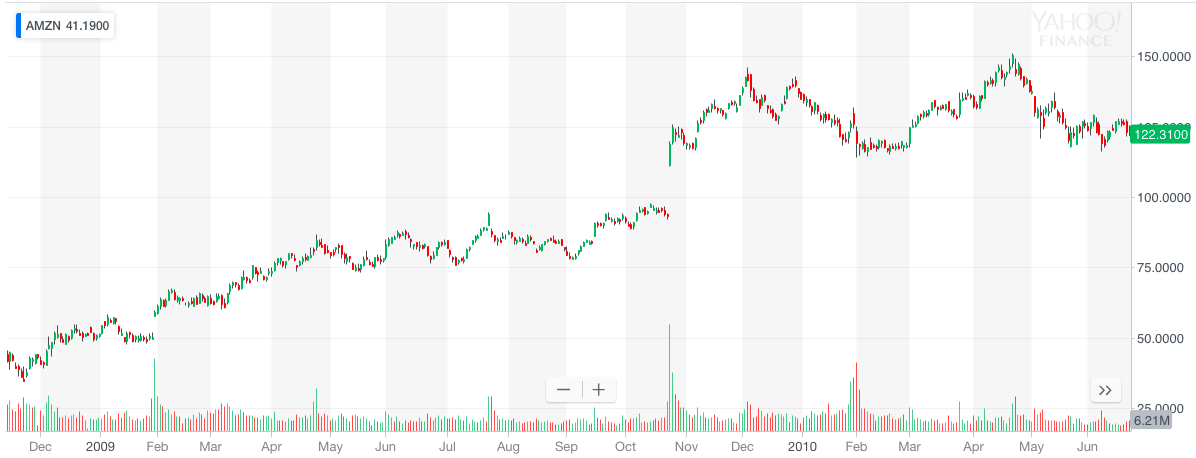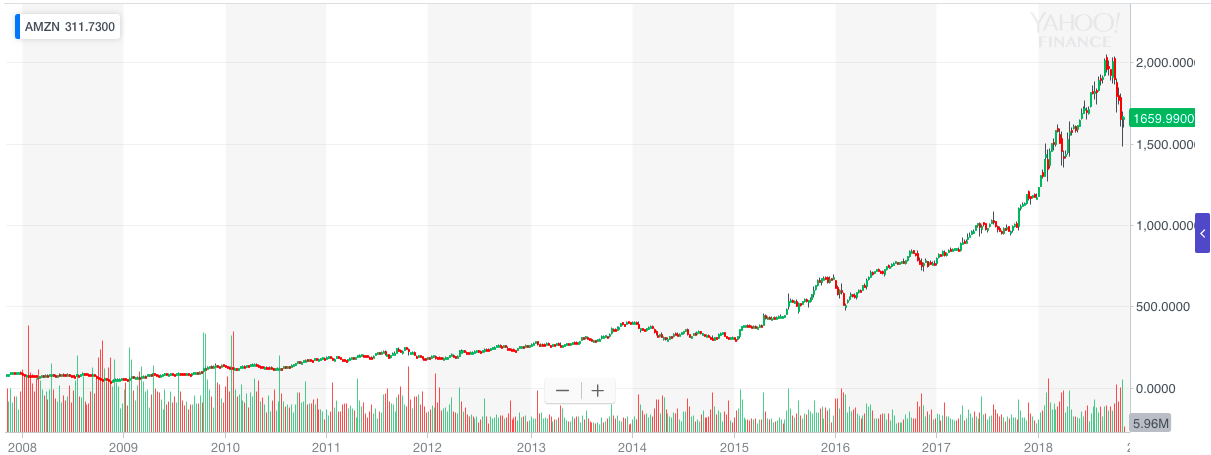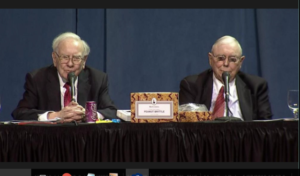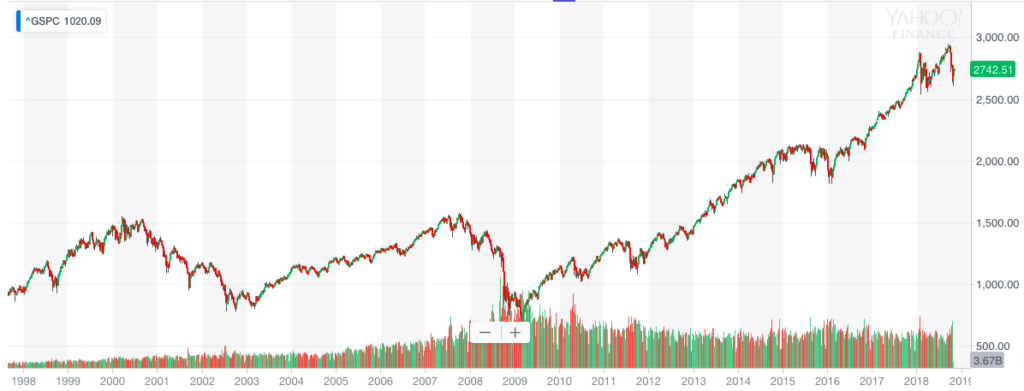How long should you own stocks? On average, your investment horizon should be longer than it is.
Winning feels a lot better than losing, which explains why so many people sell their winning stocks too soon. The American Psychological Association found that investors across all demographics and personality types sell their winning stocks too early.
“People want a sense of pride, so they sell a winning stock because it makes them feel good”.
It feels great to lock in that gain, and eliminate that chance of loss. However, selling also locks in a 100% chance that you won’t capitalize on future gains, and you’ll have to pay capital gains taxes on what you made.
In this article, we’ll discuss why you should always hold on to your stock for at 1 year, share why Warren Buffett rarely sells his big winners, and show how much you lose by selling your winning stocks too soon.

Always Plan to Own a Stock Longer Than 1 Year
You can’t escape taxes, but you can limit them. If you sell your investment within 1 year, it will be taxed as income rather than capital gains. Income taxes are 22% for anybody making over $38k, and that amount increases as high as 37%. Since capital gains are only 15%, you can easily double your tax bill simply by selling a stock within 364 days instead of 366.
With that said, you can also do the opposite and sell your losing stocks at a loss to back out of your income as well. This is known as tax loss harvesting.
For example, suppose you made $100k in salary last year, and are in the 24% income tax bracket. If you bought a stock for $10k, and the stock went down 50% and is worth $5k, you could sell that for a loss and back that out of your income taxes. That $5k comes loss results in a $1,200 income tax drop. Although the loss was painful, our income tax laws allow you to make back an additional $1,200.
You Can Lose A Killing From Future Gains
Let’s go back in time to the bottom of the financial crisis in December 2018. Amazon plummeted to roughly $41 per share back then.
If you invested in them at that bottom, and had a one year investment horizon, you could have sold at $122 per share. You would have netted a 197% return on that investment. If you invested $10k in Amazon, you would have had nearly $30k after just one year.

Great, 197% returns are nothing to sneeze at. But what did you lose by selling? By exiting your position in Amazon, you no longer can capitalize on their future gains. Let’s see how Amazon did from 2010 to today.

See that point where you sold in 2010? It’s now a blip on the radar. Amazon skyrocketed from $122 per share to $1,660 per share. If you held on, that same $10k would be worth $405k in October 2018. Instead of a 197% gain, your gain would have been 3,949%!
Remember to factor your opportunity cost of selling. You can only lose 100% of a poor investment. However, if you sell a winner too soon, you could lose out on 1,000% or more. In the case of Amazon, you would have lost nearly 4,000%.
Capital Gains Taxes Can Add Up
You also lock in a 100% chance on paying capital gains taxes. Capital gains are taxed at 15% of gains between $38k and $425k as of 2018.
This means that if you bought $10k worth of Amazon several years ago, and then sold it for $100k, you would need to pay capital gains on the $90k that you made off the investment. Therefore, selling Amazon will give you a tax bill of $13,500.
Capital gain taxes are a primary reason why Warren Buffett won’t sell his winners, such as Wells Fargo or Coca-Cola. Warren Buffett started buying Wells Fargo in 1989 for roughly $2 per share, an initial investment of $290 million. This comes out to roughly 145 million shares.
That same 145 million shares is worth $7.8 billion in October 2018. Therefore, if Warren Buffett’s Berkshire Hathaway sold those 145 million shares, he would have a tax bill of roughly 20% of his $7.5 billion gain. This comes out to over $1.5 billion in taxes if they sold.
Warren Buffett’s partner Charlie Munger said it best, “The big money is not in the buying and selling … but in the waiting”

What If Your Investment Goes Down?
The counterargument for how long you should own stocks is that the longer you own them, the more likely that gain disappears. Your investment has a 20% return now, what if that gain goes negative tomorrow?
Thankfully investments tend to go up over the long run. As you add more time to your investment horizon, your chances for a capital loss go down. By holding on to your investment longer, you’ll actually reduce the opportunity of loss.
Here’s a chart of the S&P 500 over the past 20 years, which Warren Buffett calls the best investment to make. So long as you held on to your investment over 10 years, you would have made money regardless of when you invested.

What is the Ideal Investment Horizon?
Warren Buffett claims that the ideal investment horizon is “forever”, and this logic is due to what we called out earlier. By holding on to a stock forever, you never have to pay capital gains, and never lose the opportunity for future gains.
However, few businesses can sustain their competitive advantages forever. New technology can destroy business models, and new management can install a toxic culture which drives the company into the ground.
Therefore, we recommend always assessing your individual holdings to see if anything has changed about your investment thesis. In general, you should plan on holding a stock for at least 5 years once you invest in them. This gives the company time to prove your thesis out.
Keep an eye on the company after 5 years. It would be silly to sell if the company is still doing great.
Finally, consider where that money will go once you sell. Have you found a better investment? A new opportunity? This is always a great reason to sell, just remember what Charlie Munger said about waiting.
Your Ideal Investment Horizon – The Bottom Line
There are few better feelings in life than selling a winning stock and locking in your gain. Unfortunately, studies show that you may be selling those wins too early, and are leaving money on the table.
If you sell within 1 year, your gains will be taxed as income instead of capital gains. This could increase your tax obligation as much as 2x. With that said, it could make sense to sell your losers within a year so you can harvest this tax benefit.
When you do sell, you’re locking in capital gains tax with your gains, and are eliminating future returns. Since the stock market goes up more often than it goes down, you’ll actually reduce the likelihood of loss by owning your stocks longer.
We recommend a 5 year investment horizon at a minimum. This gives the company time to prove out your investing thesis, and ensures you don’t sell too early to lock in future gains. With that said, we don’t ever recommend selling a company that has a dominant competitive position and solid management. If they are doing all the right things after 5 years, hold on to them and enjoy the ride.
By owning stocks longer, you’ll increase your overall gains and reduce the taxes you have to pay. It may feel good selling winners early, but your future self will thank you for having the will to stay patient.